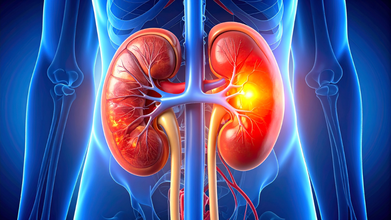- Health Conditions A-Z
- Health & Wellness
- Nutrition
- Fitness
- Health News
- Ayurveda
- Videos
- Medicine A-Z
- Parenting
Still Struggling To Lose Weight After Ditching Junk Food? 5 Reasons Why

Image Credit: Canva
You’ve waved goodbye to cookies, chips, and everything else that comes in a shiny wrapper, but the scale refuses to budge. It can be disheartening when cutting out processed foods doesn’t translate into immediate weight loss.
While eliminating junk food is an essential first step, weight loss often requires more nuanced adjustments. Studies, including a 2019 publication in Cell Metabolism, reveal that processed foods can lead to increased calorie consumption — about 500 extra calories daily compared to whole, unprocessed diets. While cutting out junk food is a commendable step, achieving sustainable weight loss requires a holistic approach.
But sometimes, ditching junk food isn’t enough. Here are five key reasons why your weight loss journey may be stalling, and how you can get back on track.
1. Your Sleep Schedule Is Sabotaging Your Goals
The connection between sleep and weight is often overlooked but crucial. Both too much sleep (over 9 hours) and too little (under 5 hours) can disrupt your body’s production of appetite-regulating hormones, such as leptin and ghrelin. This hormonal imbalance can increase cravings and overeating, particularly for high-calorie foods.
Additionally, poor sleep can leave you feeling fatigued, making it harder to stick to exercise routines.
How to Fix It: Aim for 7–8 hours of quality sleep per night. Establish a consistent bedtime routine and minimize screen time before bed to improve sleep hygiene.
2. Liquid Calories Are Sneaking Into Your Diet
You may have switched to a "healthier" drink lineup, but beverages like fruit juices, sugary coffee drinks, and wine can contain hidden calories that derail progress. Even organic fruit juices, often marketed as healthful, are loaded with sugar and lack the fiber found in whole fruits.
How to Fix It: Stick to water, unsweetened tea, black coffee, or sparkling water. To manage hunger, drink two cups of water 30 minutes before meals—a strategy backed by research in the Journal of Natural Science, Biology and Medicine. Treat calorie-laden drinks as occasional indulgences rather than daily staples.
3. Meal Timing Is Working Against You
When and how often you eat can significantly influence weight loss. Skipping meals can lead to overeating later, while constant grazing throughout the day can result in unnoticed calorie overload.
Studies show that front-loading your calories, with a substantial breakfast and lighter evening meals, promotes greater weight loss. Research published in the journal Obesity found that individuals consuming larger breakfasts lost twice the weight compared to those who favored bigger dinners.
How to Fix It: Stick to eating every 3.5 to 4 hours during a 10–12-hour daytime window. This approach stabilizes blood sugar and encourages fat reserves to be used for energy between meals.
4. You’re Overcompensating for Exercise
Exercise is a cornerstone of weight loss, but it’s easy to overestimate the calories burned and indulge in post-workout treats. That post-spin class protein shake or granola bar may negate your calorie deficit if not balanced within your daily intake.
How to Fix It: Plan snacks strategically. If your workout falls within two hours of a meal, skip the extra snack and refuel during your regular meal. If you need a snack, opt for small, protein-rich options like Greek yogurt or a handful of nuts.
5. Water Intake Is Falling Short
Water plays an underrated role in weight loss. Staying hydrated helps control hunger and reduces the temptation to reach for sugary drinks. Dehydration, on the other hand, can be mistaken for hunger, leading to unnecessary snacking.
How to Fix It: Drink 2–6 cups of water daily to satisfy thirst without adding calories. Carry a reusable water bottle as a visual reminder to stay hydrated throughout the day.
What Other Factors Can Hinder Weight Loss
Sitting for long hours, whether at a desk or on the couch, can slow your metabolism and disconnect your body’s natural hunger cues. Incorporating even short bursts of activity, like three 10-minute walks daily, can reignite your metabolism.
Stress often leads to comfort eating, favoring calorie-dense, nutrient-poor foods. Mindfulness practices, such as meditation or journaling, can help address the emotional triggers behind overeating.
Medical conditions, genetics, or hormonal imbalances can also impede weight loss. If your efforts yield no results, consult a healthcare professional for tests or guidance tailored to your needs.
Weight loss isn’t linear, and small, consistent adjustments are more effective than drastic overhauls. By identifying and tackling these hidden barriers, you can set yourself up for lasting success on your health journey.
Ultra-Processed Diets Cause Excess Calorie Intake and Weight Gain. Cell Metabolism. 2019
Effect of excessive water intake on body weight, body mass index, body fat, and appetite of overweight female participants. J Nat Sci Biol Med. 2014
German Study Shows Squirrels May Be Harboring Mpox Virus

Credit: Canva
Squirrels could be natural hosts of the mpox virus (MPXV) -- that causes monkeypox disease -- according to a recent study by German researchers.
The team from the Helmholtz Institute for One Health (HIOH) identified the fire-footed rope squirrel (Funisciurus pyrropus) as a likely natural reservoir of the MPXV.
The study published in the journal Nature revealed that sooty mangabeys – a primate found in West Africa -- can contract mpox by eating infected squirrels. The disease may present mild lesions, but it can also cause more severe skin lesions or even be fatal.
"Identifying the animal sources of the virus and the exposure routes that lead to inter-species transmission are key steps towards understanding spillover mechanisms and developing effective prevention measures to mitigate the risk of transmission to humans," said Livia V. Patrono, one of the senior authors at HIOH.
Squirrels Suspected MPXV Hosts
While squirrels have long been suspected as potential reservoirs for MPXV, their role was confirmed after an investigation of an mpox outbreak among wild sooty mangabeys (Cercocebus atys) in Côte d'Ivoire.
During the outbreak, reported in early 2023, nearly one-third of the primates showed clinical signs of disease, and four infants died.
The team conducted viral genome sequencing and found that the infected monkeys carried a virus that was nearly identical to an MPXV strain identified in a fire-footed rope squirrel found dead 12 weeks earlier nearby.
Further, the team analyzed fecal samples from the mangabeys. A sample collected eight weeks before the outbreak's onset contained DNA from both the virus and the rope squirrel. This provided strong evidence of interspecies transmission at that moment.
Sooty mangabeys have been previously observed catching and eating fire-footed rope squirrels, which provide a direct route for the transmission of viruses.
Mpox Continues To Spread Globally
Although mpox is no longer a public health emergency, outbreaks of clade I and clade II strains of the mpox virus are continuing in many countries around the world, especially in Africa.
Last week, Madagascar announced the country's first death from mpox, a 3-year-old girl from the island nation’s eastern city of Toamasina.
The WHO has also confirmed that two cases of the recombinant strain – combining genomic elements of clades Ib and IIb of the monkeypox virus (MPXV) – have been identified to date: one in the United Kingdom and one in India.
Mpox is an infectious disease caused by the monkeypox virus (MPXV), part of the Orthopoxvirus genus, which also includes the virus that causes smallpox.
It spreads through close physical contact, including sexual contact, and in some cases through contaminated materials or respiratory droplets.
Symptoms typically include fever, swollen lymph nodes, rash, and/or lesions.
The global health body has also urged all countries to “remain alert to the possibility of MPXV genetic recombination.” It has also urged for continued epidemiological surveillance, sequencing, vaccination of at-risk groups, and infection prevention and control measures.
This AI Tool Predicts Women’s Breast Cancer Risk Up to Four Years

Credit: Canva
An international group of scientists has created an artificial intelligence tool that can estimate a woman’s likelihood of developing breast cancer within the next four years.
The AI tool, known as the BRAIx risk score, analyzes mammogram images to generate an individualized risk assessment and flag women who may face a higher chance of developing the disease.
It may not only show the current risk but also predict the future risk, enabling early detection and treatments for a better outcome.
According to the findings published in The Lancet Digital Health journal, nearly one in 10 women ranked in the top 2 percent of risk by the AI tool were diagnosed with breast cancer within four years. This was despite previously receiving a clear screening result.
“These risk scores enable future development of personalized screening pathways to transform population breast cancer screening and save lives,” said corresponding author Helen M. L. Frazer of the University of Melbourne.
Frazer noted that identifying women who appear cancer-free but carry very high risk -- comparable to those with inherited BRCA1 or BRCA2 mutations -- will unravel both hereditary and non-hereditary causes of breast cancer.
From one-size-fits-all screening to personalization
Breast cancer screening programs have significantly lowered mortality rates -- by roughly 40-50 percent among women aged 50 to 74. However, most screening systems still apply the same approach to all women, regardless of individual risk.
Traditional screening tools use genetics, breast density, and questionnaires to estimate breast cancer risk. On the other hand, new AI-based screening tools, such as BRAIx personalizes screening by gathering information already present in breast scan images to better identify who is at higher risk.
“Our results show that conventional mammographic density is a far weaker predictor of breast cancer risk than the BRAIx risk score, even for interval cancers,” the researchers said in the paper. Interval cancers are aggressive tumors diagnosed after a negative mammogram.
The BRAIx Tool
The BRAIx risk score was developed using mammograms from nearly 400,000 women. To prove its efficacy, the AI tool was tested on data from almost 96,000 women from Australia and then confirmed in an independent Swedish population of over 4,500 women.
The findings showed that:
- The BRAIx risk score estimated breast cancer risk more accurately than the traditional risk factors, such as breast density, country of birth, and even family history.
- For the top 2 percent of women with the highest BRAIx risk score, the probability of a cancer diagnosis within 4 years was 9.7 percent -- a risk level exceeding that typically seen in women with inherited BRCA1 or BRCA2 mutations.
The BRAIx risk score can:
- Make breast screening more personalised,
- Improve early cancer detection,
- Reduce false alarms,
- Save lives without increasing costs
Global Breast Cancer Burden
Breast cancer continues to be the most common cancer among women worldwide.
A recent study published in The Lancet Oncology journal predicted that the number of new cases of the deadly disease will reach more than 3.5 million globally in 2050 -- rising by a third from 2.3 million in 2023.
Annual deaths from the disease will also rise by 44 percent -- from around 764,000 to 1.4 million.
However, not smoking, getting sufficient physical activity, lowering red meat consumption, and having a healthy weight can help prevent over a quarter of healthy years lost to illness and premature death from breast cancer.
COVID Survivors At Nearly Fivefold Risk Of Kidney Failure: Study

Credit: Canva
People who survived a COVID-19 infection can be at significant risk for kidney disease, acute kidney injury, and chronic kidney disease. compared to individuals who were not infected, according to a study.
The study, published online in the journal Communications Medicine, revealed that COVID patients have
- a 2.3-times higher risk of acute kidney injury
- a 1.4-times higher risk of chronic kidney disease
- a 4.7 times higher risk of kidney failure
“While we’re in the post-pandemic era, this shows that COVID-19 history is an important variable when considering the long-term impact of the infection on kidney function and disease,” said first author Yue Zhang, who was at Pennsylvania State University, US, while conducting the study. Zhang is currently a postdoctoral scholar at Johns Hopkins Bloomberg School of Public Health.
How Was The Study Conducted?
For the study, data on over 3 million working-age adults in the United States were analyzed.
The team compared the effect of influenza, another common viral infection that affects kidney health, and people with a history of COVID infection on kidney infections.
Using a machine learning model, the individuals were followed between 180 and 540 days for the emergence of new acute or sudden kidney disease.
The results showed that:
- Both COVID and the flu can worsen kidney health
- Flu caused a mild and temporary effect
- COVID increased the risk of acute kidney injury for a longer duration
- COVID survivors developed kidney disease within a few hours to a few days
- COVID patients had a longer-term chronic and end-stage kidney disease.
How COVID Worsens Kidneys Health
The Penn State researchers explained that kidney cells express high levels of the primary protein receptors that SARS-CoV-2 uses to enter and infect cells. Kidney cells also produce specialized enzymes that help viruses enter cells.
According to Kidney Health Australia, an acute COVID infection can impact the kidneys with fevers and respiratory symptoms, and/or worsening blood sugar control.
The US National Institutes of Health stated that renal dysfunction is an increasing clinical indicator of COVID propagation.
Citing several studies, the NIH said that the most common clinical manifestation is proteinuria -- found in more than half of the COVID patients. In addition, hematuria, elevated blood urea nitrogen, and elevated serum creatinine are other common features in Covid survivors with poor kidney health.
Nasr Ghahramani, Professor of Medicine at Penn State College of Medicine, stressed the need for COVID survivors, especially those with diabetes and high blood pressure, to take "more frequent and more prolonged monitoring of their kidney function" to enable early detection and better outcomes.
© 2024 Bennett, Coleman & Company Limited

